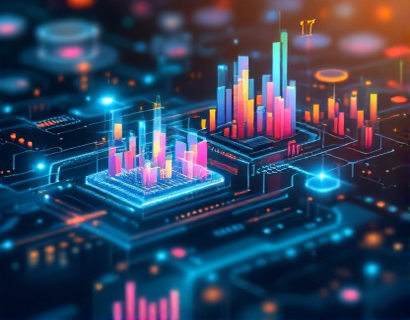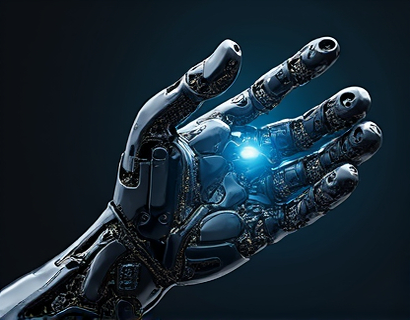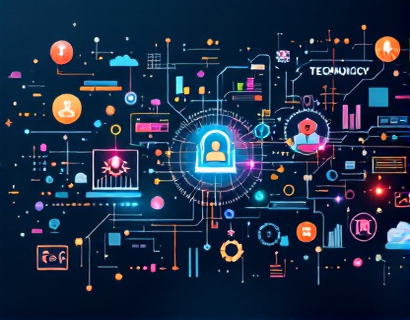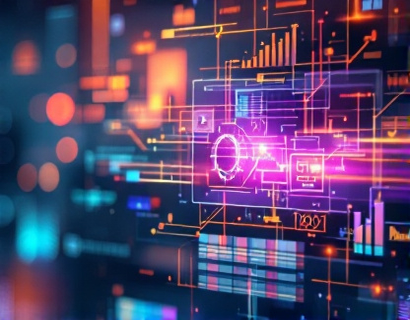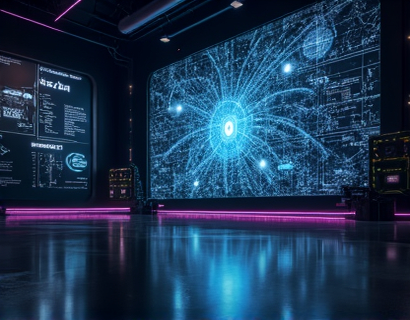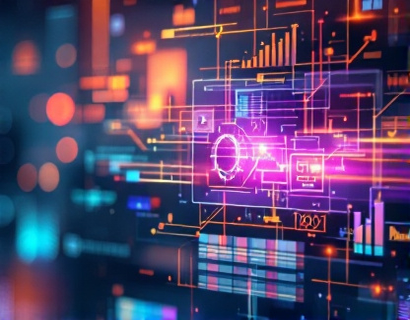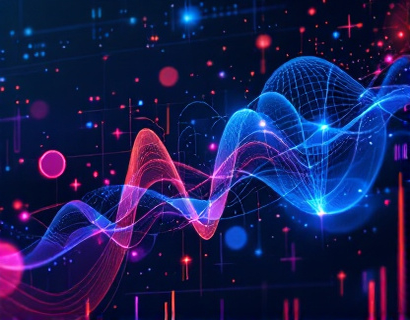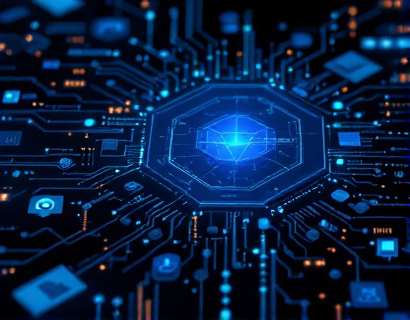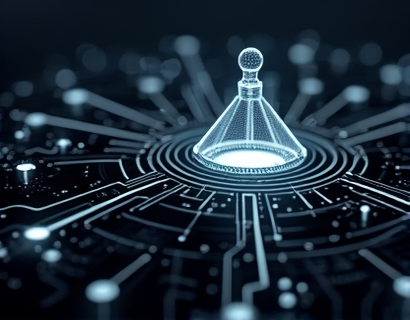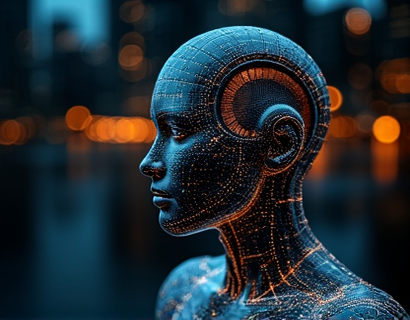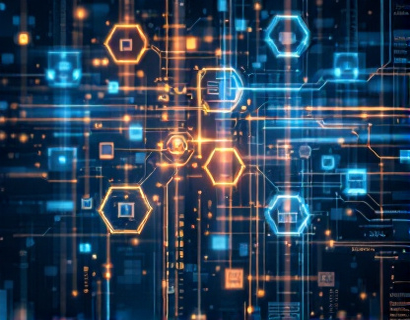Crypto and AI: Pioneering Enhanced Digital Experiences for the Future
The intersection of cryptocurrency and artificial intelligence (AI) is giving rise to a new era of digital innovation, where the potential for enhanced user experiences is vast and transformative. This convergence is not just a technological curiosity but a fundamental shift in how we interact with digital services and applications. As we delve into this topic, it's essential to understand the foundational technologies driving this change and their implications for the future.
Understanding Cryptocurrency and AI
Cryptocurrency, at its core, is a digital or virtual currency that uses cryptography for security and operates on a decentralized network, typically a blockchain. This decentralized nature ensures transparency, security, and reduces the need for intermediaries. On the other hand, AI refers to the simulation of human intelligence processes by machines, particularly computer systems. These processes include learning (the acquisition of information and rules for using it), reasoning (using rules to reach approximate or definite conclusions), and self-correction.
The integration of AI into cryptocurrency systems brings about a synergy that enhances functionality, security, and user experience. AI algorithms can analyze vast amounts of data to predict market trends, optimize trading strategies, and enhance the security of blockchain networks. Conversely, the transparency and immutability of blockchain can provide a robust framework for AI systems to operate, ensuring data integrity and reducing the risk of fraud.
Enhanced Security Through AI
One of the most significant benefits of combining AI with cryptocurrency is the enhancement of security measures. Traditional cybersecurity methods often struggle to keep pace with evolving threats, but AI can adapt and learn from new patterns in real-time. Machine learning models can detect anomalies and potential security breaches more efficiently than manual monitoring. For instance, AI can analyze transaction patterns to identify suspicious activities and automatically trigger alerts or preventive measures.
Smart contracts, which are self-executing contracts with the terms directly written into code, can also benefit from AI. AI can ensure that the conditions of smart contracts are met accurately and securely, reducing the risk of errors or malicious alterations. This not only enhances the reliability of smart contracts but also increases trust in decentralized applications (dApps) built on blockchain technology.
Optimized User Interfaces with AI
The user interface (UI) and user experience (UX) of digital services are critical factors in user adoption and satisfaction. AI-driven interfaces can adapt to individual user preferences and behaviors, providing a more personalized and intuitive experience. For example, AI can analyze user interactions to predict and suggest actions, streamline workflows, and reduce the learning curve for new users.
In the context of cryptocurrency, AI can enhance wallet applications by offering features like automated investment advice, real-time market updates, and secure transaction recommendations. These AI-powered features not only make the user experience more seamless but also empower users to make more informed decisions.
Decentralized Finance (DeFi) and AI
Decentralized Finance (DeFi) is a rapidly growing sector that leverages blockchain technology to create financial services without traditional intermediaries. AI plays a crucial role in DeFi by providing sophisticated tools for risk management, portfolio optimization, and automated trading. AI algorithms can analyze market data, economic indicators, and other relevant factors to make predictive models and trading decisions.
One of the key applications of AI in DeFi is the creation of autonomous financial systems. These systems can operate 24/7, execute trades based on predefined criteria, and adapt to market conditions in real-time. This not only increases efficiency but also opens up financial opportunities to a broader audience, including those in underbanked regions.
Supply Chain Transparency with Blockchain and AI
Beyond finance, the combination of blockchain and AI is revolutionizing supply chain management. Blockchain provides a transparent and immutable ledger for tracking goods from production to delivery, while AI can analyze this data to optimize logistics, predict demand, and identify bottlenecks. For instance, AI can process large datasets to forecast inventory needs, optimize transportation routes, and ensure compliance with regulatory standards.
This level of transparency and efficiency not only reduces costs but also enhances trust among stakeholders. Consumers can trace the origin and journey of products, ensuring authenticity and ethical sourcing. For businesses, this means improved operational efficiency and a stronger brand reputation.
Enhanced Identity Verification
Identity verification is a critical aspect of digital transactions, and the combination of blockchain and AI offers robust solutions. Traditional identity verification methods are often centralized, vulnerable to breaches, and prone to fraud. Blockchain provides a decentralized and secure way to store identity data, while AI can enhance the verification process through biometric analysis and behavioral patterns.
AI-powered systems can analyze multiple data points, such as facial recognition, voice patterns, and transaction history, to verify identities with high accuracy. This not only improves security but also simplifies the user experience by reducing the need for multiple forms of identification. For users, this means faster and more secure access to digital services.
Challenges and Considerations
While the potential of combining cryptocurrency and AI is immense, there are several challenges and considerations to address. One of the primary concerns is regulatory compliance. The decentralized nature of blockchain and the innovative use of AI can complicate regulatory frameworks, which are still evolving in many jurisdictions. Ensuring compliance while maintaining the benefits of these technologies requires careful navigation and collaboration with regulatory bodies.
Another challenge is the technical complexity involved in integrating AI with blockchain systems. Developing robust and scalable solutions requires expertise in both domains, and there is a need for standardized protocols and best practices. Additionally, the energy consumption of blockchain, particularly proof-of-work systems, raises environmental concerns that must be addressed to ensure sustainable growth.
Future Prospects
Looking ahead, the integration of cryptocurrency and AI is poised to drive significant advancements in various sectors. In healthcare, AI can analyze blockchain-based medical records to provide personalized treatment plans and enhance patient care. In the Internet of Things (IoT), AI can optimize the management of decentralized devices, ensuring efficient and secure communication.
The financial sector will continue to benefit from AI-driven insights and blockchain's transparency, leading to more inclusive and efficient markets. The gaming industry can leverage these technologies to create more immersive and fair experiences, with in-game economies powered by cryptocurrency and AI-driven dynamics.
As these technologies mature, we can expect to see more innovative applications and a deeper integration into everyday life. The key will be to balance innovation with responsibility, ensuring that the benefits are widely accessible and the risks are mitigated.
In conclusion, the convergence of cryptocurrency and AI represents a transformative force in the digital landscape. By enhancing security, personalizing user experiences, and optimizing processes, these technologies are paving the way for a more connected, efficient, and secure future. As tech enthusiasts and professionals, staying informed about these developments is crucial for harnessing their potential and shaping the digital world of tomorrow.



